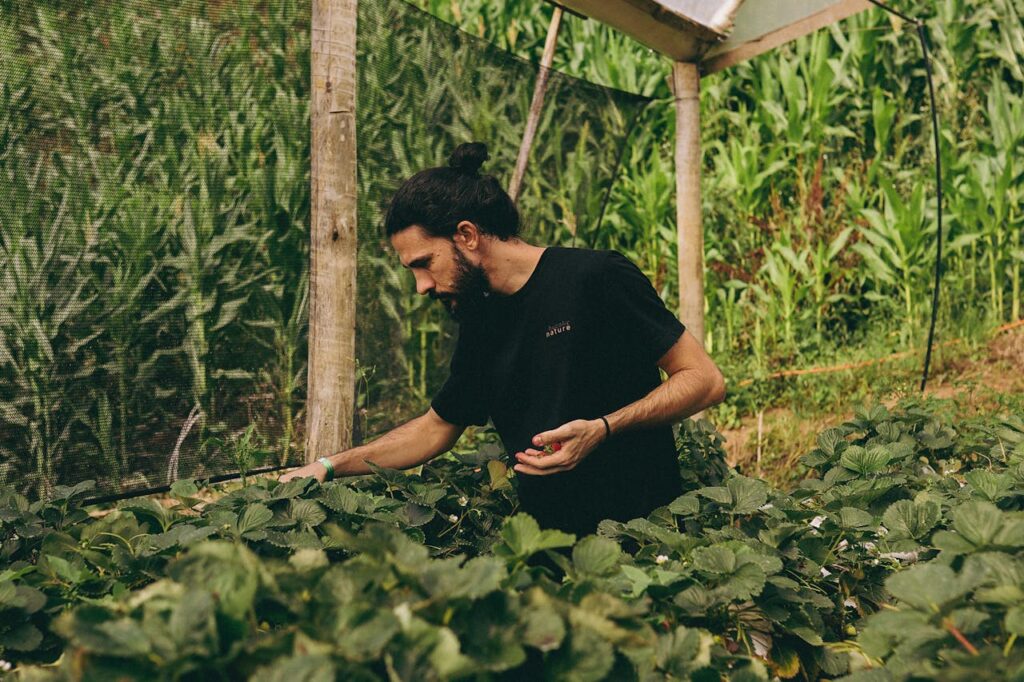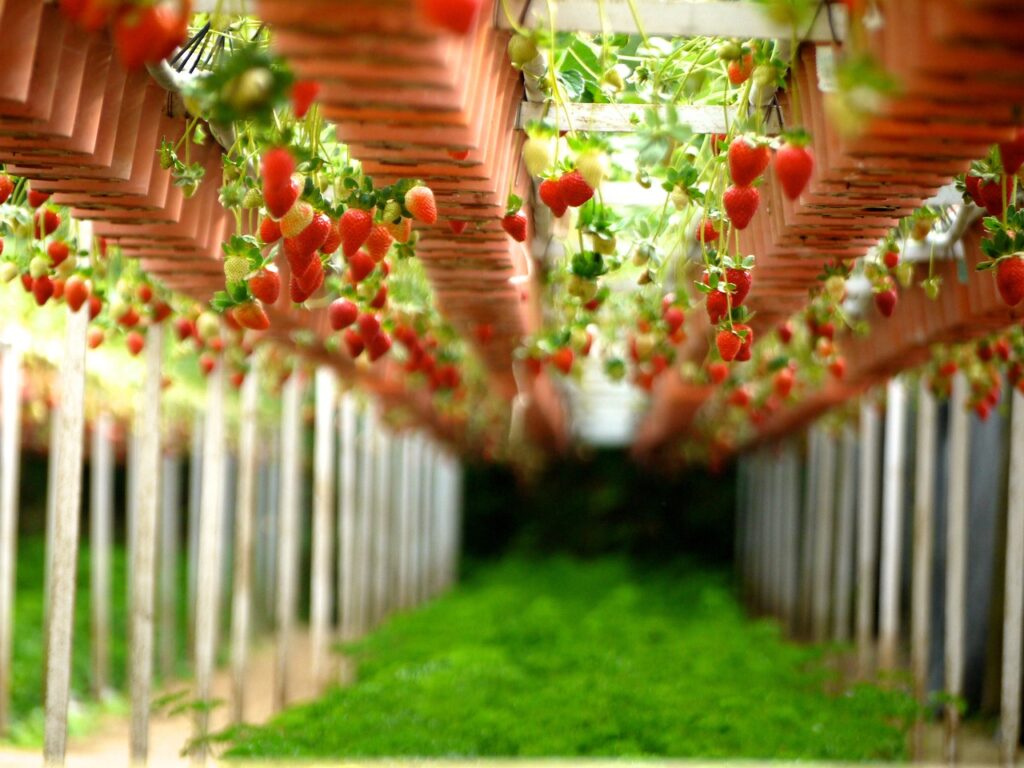
Learn how to select the perfect soil for successful strawberry cultivation. Discover essential tips and guidelines for optimal soil preparation.
Strawberries do well in cold countries. In hot countries, the plant grows but does not want to bear fruit easily. Some varieties are being cultivated experimentally with the efforts of researchers. Especially in the districts where winters are long and long, strawberries can be cultivated.

Strawberries can be grown by applying a lot of organic fertilizers to sandy loam and soil. Strawberries cannot be grown in waterlogged lands. The land should be plowed well and cleaned to a depth of 30 cm. Since the roots of the strawberry plant are above the soil, the soil should be loosened and the prescribed amount of fertilizer should be mixed well in the soil.
Strawberry seedlings are still not readily available. Especially desired seedlings must be procured from a trusted nursery. Strawberry plants are shrubs and vines with several long vines climbing above the ground from the base of the plant. Roots grow from the vine's roots in contact with the soil. Cutting the rooted cuttings and planting them in the soil will produce new seedlings. Half soil mixed with half cow dung manure should be filled in a polybag and buried vines with one rooted bit each. In this case it is possible to make 18-20 seedlings from one tree. Strawberry seedlings can be planted from mid-October to mid-December. But November is the best month for planting strawberry seedlings. After preparing the land, the distance from line to line will be 50 cm and strawberry seedlings should be planted at a distance of 30 cm in each row. When it rains, excess water must be removed from the field, otherwise the plants will rot
Strawberries need a lot of organic fertilizers. For this, 50-60 kg of urea fertilizer, 70 kg of TSP fertilizer and 80 kg of MOP fertilizer should be applied per acre. These fertilizers should be divided into two equal parts, one part should be given one month before flowering and the other part should be given at the time of flowering. Irrigation should be done after 2-3 days after fruiting.

Special care must be taken if you want to catch flowers on strawberry plants. After the tree is planted, a lot of runners or small creepers start coming out from its base. They cover the land. It does not yield well. Straw or polythene should be spread at the base of the tree so that these creepers do not come out. After 30 cm of the polythene seat, make round holes and insert the strawberry bush by hand. Hormones can be sprayed on leaves to get higher yield and early fruiting.
Sandy loam soil with good drainage is ideal for growing strawberries. Avoid waterlogged soils.
While strawberries prefer colder climates, certain varieties can be cultivated experimentally in hot climates with proper care and attention.
Trustworthy nurseries often provide reliable strawberry seedlings for cultivation.
The best time for planting strawberry seedlings is from mid-October to mid-December, with November being the optimal month.
Plow the land well to a depth of 30 cm, ensuring loose soil. Mix organic fertilizers thoroughly into the soil.
Apply 50-60 kg of urea fertilizer, 70 kg of TSP fertilizer, and 80 kg of MOP fertilizer per acre. Divide them into two equal parts for application before flowering and at the time of flowering.
Irrigate the plants every 2-3 days after fruiting, ensuring proper moisture levels.
To prevent excessive runner growth, spread straw or polythene at the base of the plant to inhibit their spread.
Hormones can be sprayed on leaves to encourage higher yields and early fruiting.
Strawberries are ready for harvest when unripe fruits start turning yellow or red in color. They do not need to be fully red for sale; they can be picked when firm and marketed in paper packets. Fruits remain good for 10-12 days after harvesting.
When the unripe fruit starts to turn yellow or red in color, it can be understood that the fruit has started to ripen. The fruit turns red when fully ripe. However, the fruit does not need to be fully red for sale. In that case, the fruits should be taken as hard. And the fruit must be picked with the pods. Later it should be marketed in paper packets. Fruits are good for 10-12 days after harvesting. Average 150-200 grams of fruit per tree. The fruit is new in this country so the risk is high. However, it can be said that strawberry cultivation will become a profitable business one day by applying talent and intelligence.
Note : If you want to know and ask more questions about agriculture, you can contact here

Copyright 2024 Farming Solutions